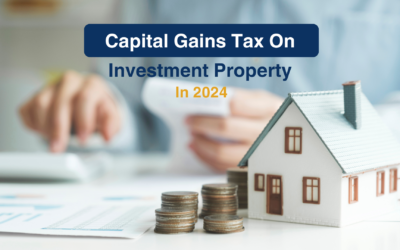Embarking on a property investment journey can be both exciting and daunting.
The allure of building wealth through real estate is undeniable.
Yet, the path is often shrouded in myths and misconceptions. These can cloud judgment, leading to costly mistakes.
In this article, we aim to debunk the top 10 property investment myths. Our goal is to provide clarity and insight, guiding you to make informed decisions in your wealth-building journey.
Whether you’re a seasoned investor or a novice, this article will equip you with the knowledge to confidently navigate the property investment landscape.

Let’s dive in and dispel these property investment myths, one by one.
Property Investment Myth 1: Property Investment Is Always a Safe Bet
The first myth we encounter is the belief that property investment is always a safe bet. This misconception stems from the tangible nature of real estate and its historical performance.
However, like any investment, property investment is not immune to risks. Market fluctuations, economic downturns, and changes in property laws can all impact the value of your investment.
It’s crucial to conduct thorough research and due diligence before investing. Understanding the market, the property, and the potential risks can help you make informed decisions and mitigate potential losses.
Myth 2: You Will Get Rich Quickly Through Property Investment
The second myth is that property investment is a fast route to wealth. This belief is often fuelled by stories of investors who’ve made substantial profits quickly.
Many of these success stories are more the exception than the rule. In reality, property investment can be vastly profitable, but it often requires a long-term strategy. It requires patience, as significant returns come from capital appreciation over time.
It’s important to have realistic expectations when investing in property. While it can be a lucrative venture, it’s not a guaranteed or immediate path to wealth. Understanding this can help you approach property investment with a more balanced and long-term perspective.
Myth 3: All Properties Appreciate Over Time
A common misconception is that all properties, regardless of their location or condition, will appreciate over time. This myth can lead investors to make hasty decisions without proper research or consideration.
The reality is that not all properties will see an increase in value. Factors such as location, market trends, and condition of the property play crucial roles in its appreciation. For instance, a property in declining neighbourhoods or a stagnant market may not appreciate as expected.
Therefore, it’s essential to conduct thorough research and due diligence before investing in a property. Understanding the factors that influence property appreciation can help you make informed investment decisions and potentially avoid costly mistakes.
Myth 4: Investing in Real Estate Is Only for the Wealthy
The belief that real estate investment is a playground exclusive to the wealthy is another widespread myth. This misconception can deter potential investors, believing they lack the necessary funds to enter the market.
In reality, various financing options make property investment accessible to many. These include traditional mortgages, government-backed loans, and private lending. Additionally, strategies like real estate investment trusts (REITs) or crowdfunding platforms allow individuals to invest in property with a smaller capital outlay.
Therefore, while having substantial capital can provide more investment options, it’s not a prerequisite for property investment. With careful planning, strategic decision-making, and leveraging the right financing options, individuals from various financial backgrounds can successfully invest in real estate.
Myth 5: You Need to Be a Real Estate Expert to Invest in Property
Another common myth is that you need to be a real estate expert to invest in property. This belief can intimidate many potential investors.
The truth is that while knowledge and understanding of the real estate market are beneficial, they are not mandatory prerequisites. Many successful investors started with little to no knowledge of the industry. What’s crucial is the willingness to learn, conduct thorough research, and possibly seek advice from professionals in the field.
In essence, property investment is a journey of continuous learning. As you gain more experience, your understanding of the market deepens. So, don’t let the lack of expertise deter you from starting your property investment journey. Instead, view it as an opportunity to learn and grow.
Myth 6: More Expensive Properties Yield Better Returns
A prevalent myth in property investment is that more expensive properties yield better returns. This misconception can lead investors to stretch their budgets, believing that a higher price tag equates to higher profits.
In reality, the potential return on investment (ROI) of a property is not solely determined by its price. Factors such as location, rental demand, property condition, and market trends play significant roles in determining the ROI.
In some cases, less expensive properties in high-demand areas may yield better returns than pricier ones in less desirable locations.
Therefore, instead of focusing solely on the price, investors should conduct a comprehensive analysis of various factors. This approach will help them make informed decisions that align with their investment goals and risk tolerance. Remember, a higher price tag does not always guarantee higher returns on property investment.
Myth 7: Renting Out Property Is Passive Income
The idea that renting out property equates to passive income is a common property investment myth. Many investors enter the real estate market with the expectation of earning easy money from rental income, with minimal effort required.
However, the reality is that managing rental properties often requires significant time and effort.
Tasks such as finding and screening tenants, handling maintenance and repairs, dealing with tenant issues, and ensuring compliance with rental laws are all part of property management. These responsibilities can be particularly demanding for investors who own multiple rental properties.
While it’s true that rental income can provide a steady cash flow, it’s important to understand that it’s not entirely passive. Investors should be prepared to invest time and effort into managing their properties or consider hiring a property management company to handle these tasks on their behalf.
Myth 8: Property Investment Guarantees Positive Cash Flow
Another prevalent property investment myth is the belief that investing in property guarantees a positive cash flow. This myth is often perpetuated by the attractive prospect of rental income, which can indeed provide a steady stream of cash.
However, it’s crucial to understand that property investment also involves various expenses like mortgage repayments, property taxes, insurance, maintenance costs, and potential vacancy periods. If these expenses exceed the rental income, the investment could result in a negative cash flow.
Therefore, investors need to conduct a thorough financial analysis before purchasing a property. This should include a realistic estimate of potential rental income, as well as all associated costs.
By doing so, investors can make informed decisions and increase their chances of achieving a positive cash flow from their property investments.
Myth 9: You Should Always Invest in Your Local Area
A common myth in property investment is the notion that you should always invest in your local area. This belief stems from the idea that familiarity with the local market gives you an advantage. While local knowledge can indeed be beneficial, it should not limit your investment horizons.
Investing solely in your local area can lead to a lack of diversification in your property portfolio. This can expose you to higher risk if your local market experiences a downturn. On the other hand, investing in different geographical areas can help spread this risk and potentially provide access to more lucrative markets.
Therefore, while local knowledge is valuable, it’s important to also consider opportunities beyond your local area. By doing so, you can diversify your property portfolio, mitigate risks, and potentially achieve higher returns.
Myth 10: Apartments Are Not a Good Investment
The belief that apartments are not a good investment is a prevalent myth in the property investment world. This misconception often arises from the idea that apartments, due to their smaller size and lack of land, do not appreciate as much as houses.
However, this is not always the case.
The value of an apartment can be influenced by various factors, including its location, the demand for apartments in the area, and the quality of the building.
In fact, in densely populated urban areas, apartments can often be a more affordable and attractive option for renters and buyers, leading to high demand and potentially lucrative returns for investors.
In conclusion, while apartments may not always offer the same potential for capital growth as houses, they can still be a profitable investment in the right circumstances. It’s crucial to consider all factors and not dismiss apartments as a viable investment option based on this myth.
Read More: Your Step-by-Step Guide to Buying Property in Australia
Conclusion: Navigating the Real Estate Investment Landscape
In the realm of property investment, myths and misconceptions can often cloud judgment. It’s crucial to separate fact from fiction to make informed decisions.
Remember, what works for one investor might not work for another. Your investment strategy should align with your financial goals, risk tolerance, and market understanding.
The myths we’ve debunked in this article are just the tip of the iceberg. There are many more misconceptions out there. Always question the assumptions you encounter and seek advice from trusted professionals.
Continuous learning and staying updated with market trends are key to successful property investing.
In conclusion, property investment can be a rewarding journey, but it’s not without its challenges. By debunking these myths, we hope to provide you with a clearer path towards your wealth-building journey.
Remember, every investment comes with risks, and the key to success lies in diligent research, strategic planning, and informed decision-making.






